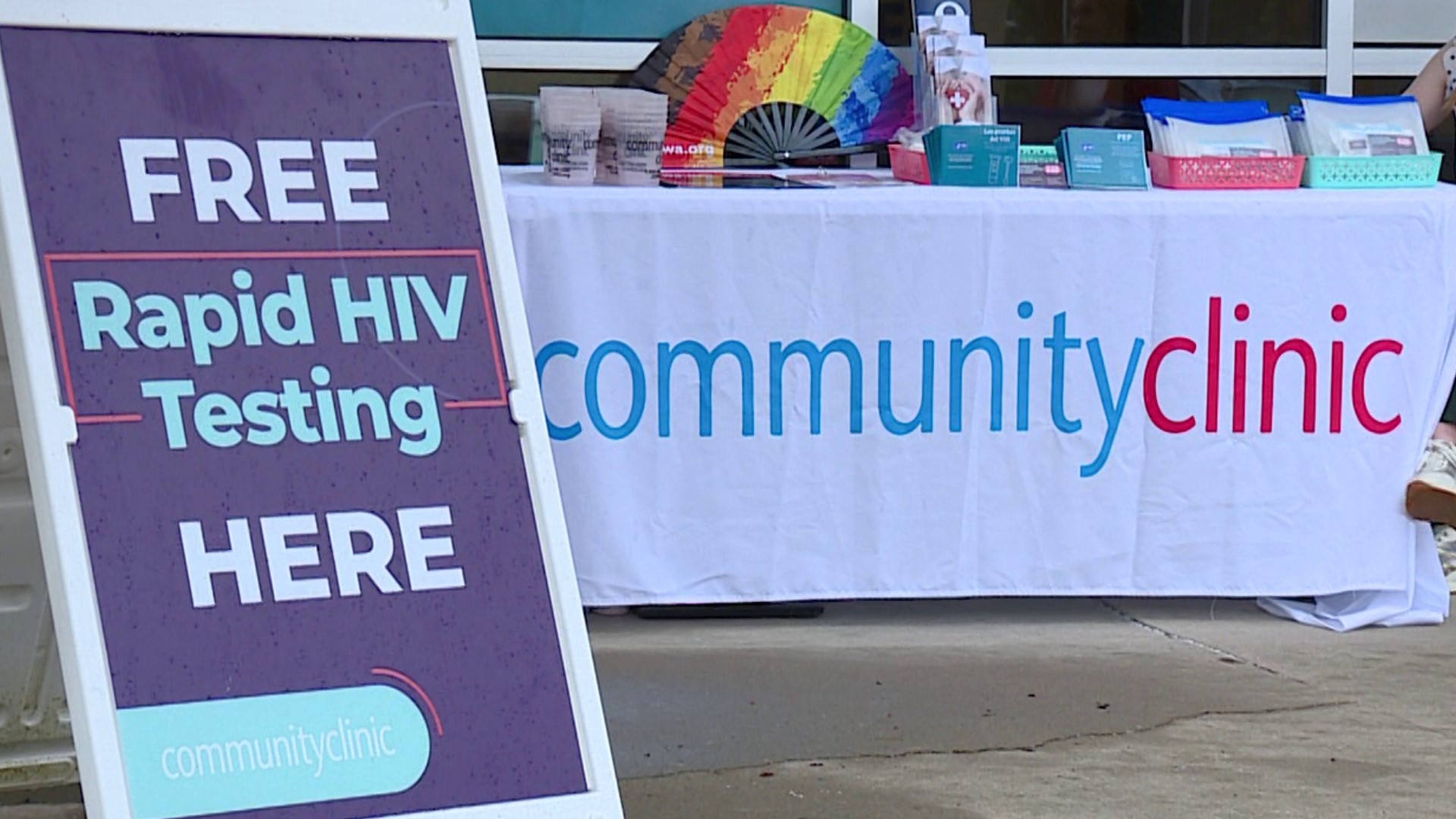ARKANSAS, USA — Dr. Atul Kothari, medical director of outbreak prevention at the Arkansas Department of Health talks about the status of HIV cases statewide.
"Arkansas has about 6000 active HIV cases, and we usually have anywhere between 200 to 300 new diagnosed infections every year."
ACHI says 1 in 8 people with HIV in the U.S. do not know they are infected, and most people have never been tested for HIV due to access and stigma.
"That is a huge concern because, you know, these are good people that have acquired a virus, but they're just not aware that they have it. Days like today, HIV prevention or testing days can really act as that kind of kickoffs that increases awareness that testing resources are available and that it's a great idea to get tested," said the Chief Medical Officer at Community Clinic, Dr. Gary Berner.
"I think there are lots of reasons why patients don't get tested. One is, of course, social stigma. Another is the unavailability of tests. The third is the need for anonymity. One of the good things that we started at the Arkansas Department of Health last year is offering home testing, which is completely anonymous and free of cost, where you can be delivered a test at your home to test yourself." said Dr. Kothari.
There are different types of rapid HIV testing you can take, there are mouth swabs- where results are received within 20 minutes, finger pricks, and a confirmatory test. Home tests are available online at CDC.gov or takemehome.org
Doctors say anyone over the age of 15 can get HIV, and it can be transmitted by contamination of bodily fluids, sexual transmission, or intravenous drug use.
"The most common way of transmission is sexual transmission. One of the things which reduces the risk of transmission is the availability of pre-exposure prophylaxis (PrEP). so people who have high-risk behaviors can take pre-exposure prophylaxis, which effectively cuts down the risk of developing HIV to close to zero," Dr. Kothari explained.
If you're wondering when you should get tested, the community clinic says everyone should get retested at any time one of the following occurs.
- You begin a new relationship
- It's been a while since you were last tested
- You develop flu-like symptoms
- You are looking to start PrEP
- You inject drugs
- You are exposed to blood
As of now, HIV is not curable, but you can live with it by taking the right medications, and if someone does test positive for HIV, Dr. Berner wants to remind the individual that they're supported and not alone throughout the journey.
"No one's walking through this alone— they're going to be living through it with a big support team that can walk them through it by helping them get to appointments, and helping take care of any extra needs.."
Rapid HIV testing is available for free at several clinics across our region and you don't need insurance to be tested nor do you have to be patient.
Watch 5NEWS on YouTube.
Download the 5NEWS app on your smartphone:
Stream 5NEWS 24/7 on the 5+ app: How to watch the 5+ app on your streaming device
To report a typo or grammatical error, please email KFSMDigitalTeam@tegna.com and detail which story you're referring to.

